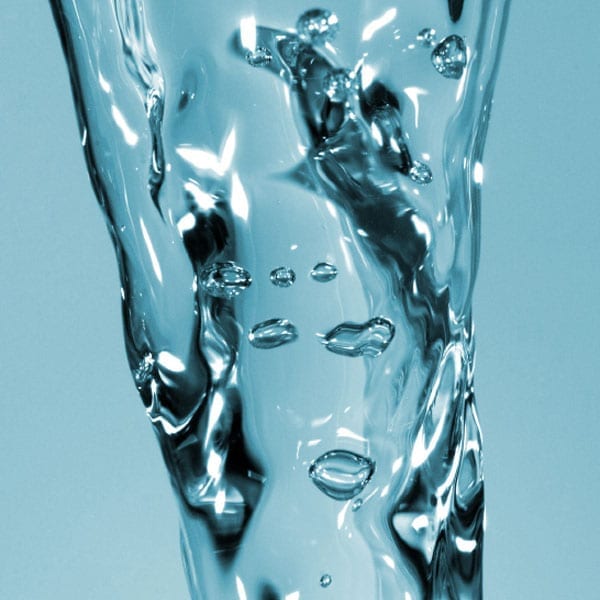We love eau
But does it love us? It’s a hotly contested environmental issue: tap water or bottled? Dietitian Juliette Kellow taps into the truth…

For years, health experts have been encouraging us to drink more water – and we’ve finally started to take their advice. According to the Bottled Water Information Office, we in the UK glug our way through 2,275 million litres of bottled water a year – almost twice as much as in 2000. But now experts are expressing concerns about how the bottled stuff affects our carbon footprint through packaging, transportation and waste disposal. The mayors of both New York and London are backing campaigns to stop residents buying it, Gordon Brown has banned bottled water at cabinet meetings, and restaurants are becoming increasingly proactive about offering tap water.
Step away from the environmental debate though, and there’s health to consider. Many of us choose bottled water as we think it contains healthier ingredients, or because we’re worried that tap water contains pesticides or chemicals.
But the idea that bottled waters contain magic health-promoting ingredients is a myth. Natural mineral water and spring water originate from underground water tables or deposits and are then treated to remove impurities before being bottled. Nothing is added, with the exception of carbon dioxide to create sparkling water. The mineral content depends solely on the composition of the rocks and soil through which the water has filtered.
Bottled water must meet strict criteria to ensure it’s safe to drink. However, it has been claimed that toxic ingredients may leach out of the packaging into the water. One German study found that some bottled waters contained antimony, a toxic heavy metal used in a variety of industrial processes.
“Antimony is used in the manufacture of bottles from polyethylene terephthalate (PET), and there is an EU maximum permitted level,” says Richard Laming, spokesperson for the Bottled Water Information Office. “Occasionally, there are reports of antimony being found in bottled water, but the levels are always considerably below those permitted for drinking water, so there is no reason for concern.”
So it seems bottled water is safe to drink. But can the same be said for tap water? After undergoing a number of treatments to remove impurities, tap water – unlike bottled water – is disinfected with chlorine to remove bacteria. Just like bottled water, the quality of the water has to meet legal standards, which are set out in an EU directive and are based on advice from the World Health Organisation. Nevertheless, some consumers remain concerned that tap water may contain undesirable substances such as nitrates from fertilisers, pesticides, drug residues or hormone-like chemicals.
However, the Water Quality Regulations set maximum levels for all of these substances. And according to the Drinking Water Inspectorate, it is perfectly safe to drink tap water. In 2006, 99.96 per cent of all tests carried out in England and Wales found the quality of tap water complied fully with all national and European standards.
“It’s a complete myth that tap water is unsafe,” says Professor Clive Thompson, Chief Scientist for ALcontrol Laboratories, a leading UK environmental contract analysis laboratory. “Most potential toxic substances can’t even be detected and levels are well below the maximum amounts set by the EC. In 2003, 99.99 per cent of more than 800,000 pesticide tests carried out on public water supplies met the standard.”
So is there any difference in the nutrient content of different waters? Both contain minerals such as calcium and magnesium, with the amount varying depending on the source of the water, but food remains the significant source of all nutrients. Some bottled waters contain added ingredients (such as vitamins, herbal extracts or flavourings), while drinking water has extra fluoride added to it, in a few parts of the UK, to help reduce tooth decay. This has been controversial, with some critics claiming that fluoridation may affect bone health and cause birth defects or cancer, but dental and health organisations, including the British Medical Association, are supportive of water fluoridation and say there is no risk to health – only a benefit to teeth.
So, it seems our choice comes down to convenience, and our concerns for the environment. Blind taste tests reveal that tap water fares just as well as bottled, so it’s the logical choice for home or eating out. However, there’s not always a tap handy, and a bottle of water is a refreshing, healthy alternative to fizzy drinks.
Meanwhile, new research suggests we should treat some fashionable health claims made for water – such as the idea that drinking two litres a day will make us look and feel better – with caution. Water companies, nutritional experts and beauty therapists sometimes claim that water can help ‘flush out’ toxins from your body. But a recent review by the University of Pennsylvania indicates that – while dehydration is certainly to be avoided – drinking large amounts of water (such as the 1.8 litres a day widely recommended in the US) is of no discernible benefit to health. In the UK, the Food Standards Agency recommends adults to drink around 1.2 litres of fluids per day to stay safely hydrated.
Subscribe to our magazine
Food stories, skills and tested recipes, straight to your door... Enjoy 5 issues for just £5 with our special introductory offer.
Subscribe
Unleash your inner chef
Looking for inspiration? Receive the latest recipes with our newsletter